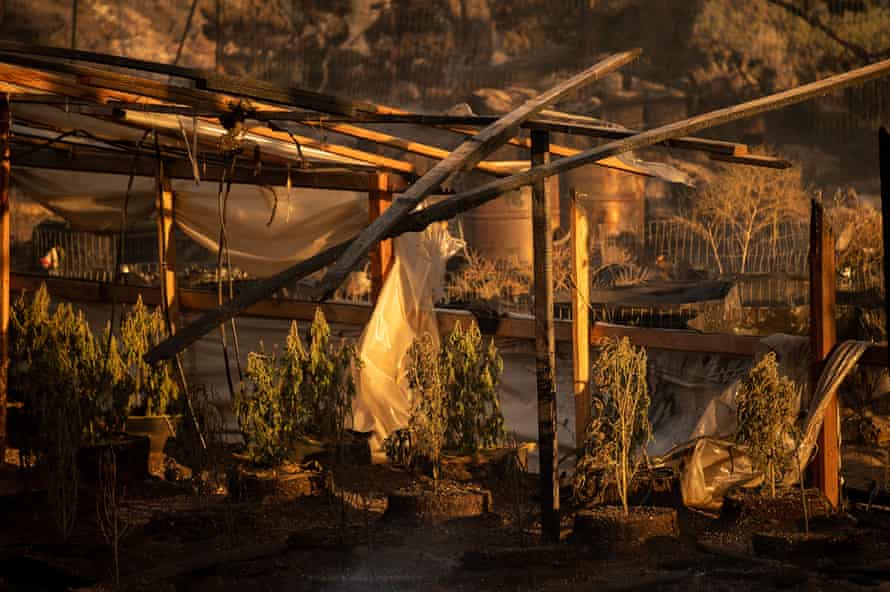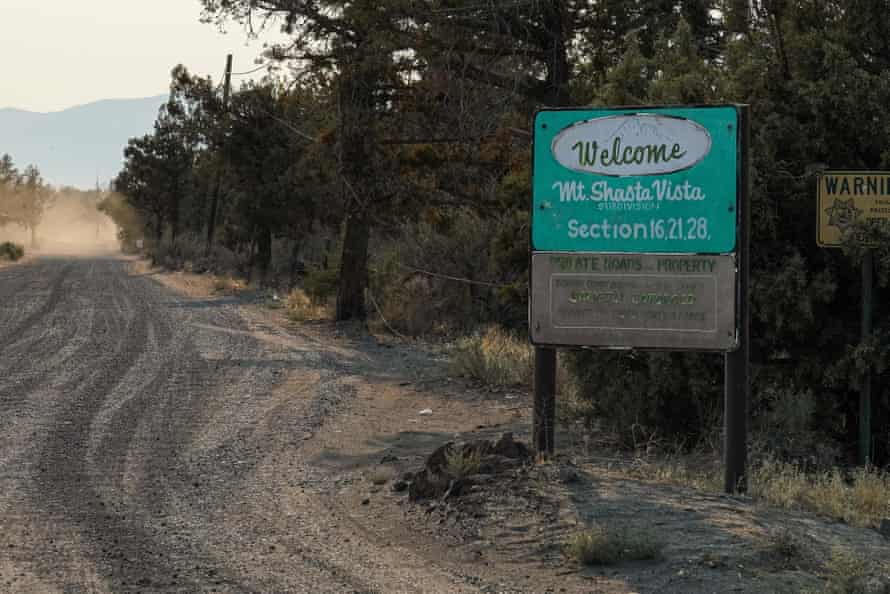Law enforcement in a rural northern California county that’s seen a major conflict over water rights stopped Asian drivers at vastly disproportionate rates compared to the county’s white population last year, in what civil rights groups have characterized as a pattern of “intentional discrimination” in the region.
The ACLU and the Asian Law Caucus, two civil rights groups, obtained traffic stop data from the Siskiyou county sheriff’s office as part of an investigation into the county’s treatment of its Asian community – particularly Hmong Americans.
Siskiyou county, a remote and sprawling swath near the Oregon border, has been locked in a months-long legal battle over extreme water restrictions. Officials have argued the county’s ban on transporting large amounts of water on certain roads is intended to protect groundwater and drive out illegal marijuana grows, which have become a major problem in the county in recent years.
But Hmong Americans living in the region say the regulations cut off their access to water amid drought and a destructive fire season and that the rules are part of a broader pattern of discrimination and harassment by officials and law enforcement.
The traffic stop records, which were obtained by the ACLU and the Asian Law Caucus, showed that though Asians make up just 2.6% of the population in the county, they accounted for 27.4% of all traffic stops in 2021 in which officials identified the people stopped.
The data also shows that that more than 61% of the people the sheriff referred for prosecution for violations of the water ordinance were Asian American. Only 8% were white, though white people comprise 75% of the county’s population.
“Based on the records produced by the county, it appears the sheriff rarely ever refers white people to the district attorney for violating the water transportation ordinance or water extraction ordinance,” the groups said in a brief filed with a federal court.
John Do, a staff attorney with the ACLU, said his group spoke with dozens of residents of the subdivision who said they were stopped by police without a cause.
“It is across the board,” he said. “All the data we’ve examined thus far indicates the targeting of the Asian community and the Hmong community.”
The county’s water transportation restrictions are focused on the 1,600-plot Mount Shasta Vista subdivision, where more than 1,000 Hmong Americans live. The neighborhood lacks basic infrastructure and residents there say they rely on water hauled in from other areas.
County officials, including the sheriff, have defended the water measures as an effective tool in a time of historic water shortages, alleging that the subdivision is rife with marijuana cultivation sites that dry up the land. The county sheriff, Jeremiah LaRue, told the Guardian in August there are close to 1,700 grows in the community.

“We don’t target any people. We target crime. It’s unfortunate that is sort of the card that’s being played,” LaRue told the Guardian at the time.
But residents say the county is singling out an entire community in their battle against pot growers, at a disastrous cost. Residents of the subdivision have said without water they were routinely dehydrated, could shower only once a week, struggled with depression and their animals died.
Civil rights groups have said the restrictions amount to targeting of the county’s Hmong residents, an effort one attorney called “Jim Crow racism”.
Last fall a federal judge temporarily blocked the county from enforcing the water laws, finding that they have the “practical effect of cutting off the water supply to a minority community that has recently been the target of racial prejudice”. Evidence supported claims that the county’s efforts were intended to force out people in the neighborhood, the judge wrote in a brief.
Residents and civil rights organizations say the water restrictions come after years of discrimination against the ethnic minority.
Hmong residents told the Guardian last year that when Hmong Americans first started moving to the area in 2015, stores sometimes refused to sell them basic goods, landlords declined to rent to them and neighbors flipped them off as they walked by.
Law enforcement painted Hmong Americans as foreigners and criminals, the ACLU argued in its brief to the court, pointing to a 2017 comment from a former sheriff arguing it was “too bad” that the county’s Hmong American residents “didn’t use their ingenuity, intelligence and skills to engage in something lawful”.
Last year, the sheriff’s office warned local businesses not to provide services or supplies, including soil, to “known illegal commercial cannabis sites”, and several people who live in Mount Shasta Vista said they were forced to buy water in secret from stores still willing to help them. The county sued two ranch owners for allegedly providing water to people in the neighborhood and accused them of selling groundwater to people growing marijuana illegally.
“The sheriff don’t care about us. They just want to force us out of here. Even though we’re residents in this county, they still don’t care,” said Cheng Xiong, who lives in the Mount Shasta Vista neighborhood, last summer.

The water laws have only further inflamed tensions, residents said. Several told the court last year that other Siskiyou residents have “brandished weapons at them, shot at their cars, stolen their belongings, told them to ‘go back where they came from,’” and threatened to burn down Mount Shasta Vista.
Meanwhile, law enforcement has continued to treat Hmong American residents unfairly, said Glenn Katon with the Asian Law Caucus.
“The injunction averted the humanitarian crisis that was taking place but the harassment and targeting has continued on a pretty huge scale,” he said.
Do, with the ACLU, added that the sheriff office’s statements and actions have had a chilling effect on the community.
The sheriff’s office and the county did not immediately respond to a request for comment.
The county has asked the judge to lift the injunction on the water laws, and said it would enforce the laws in the entire county rather than in select areas.


Be the first to comment